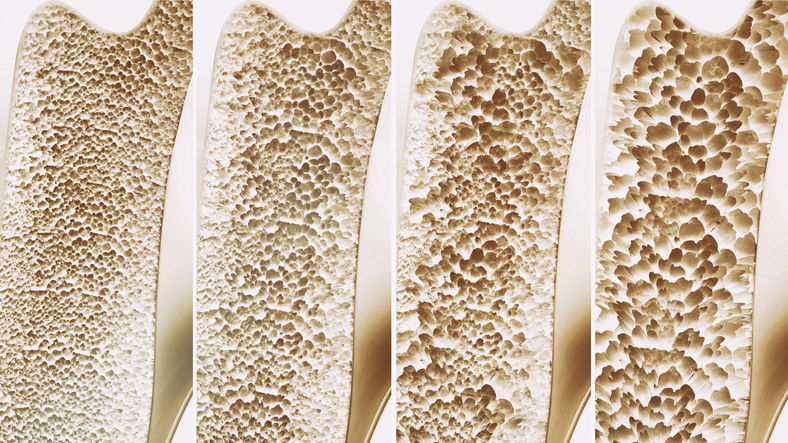Scientists report that a relative abundance of certain gut microbes may be related to skeletal health. If confirmed by additional research, the findings could provide the opportunity to alter gut microbiomes to achieve better bone health, as more is learned about “osteomicrobiology,” a new term recently used to characterize this relationship.
The current multi-institutional-based study, “A two-cohort study on the association between the gut microbiota and bone density, microarchitecture, and strength,” appears in Frontiers in Endocrinology.
“The gut microbiome affects the inflammatory environment through effects on T cells, which influence the production of immune mediators and inflammatory cytokines that stimulate osteoclastogenesis and bone loss in mice. However, there are few large human studies of the gut microbiome and skeletal health. We investigated the association between the human gut microbiome and high-resolution peripheral quantitative computed tomography (HR-pQCT) scans of the radius and tibia in two large cohorts,” the investigators wrote.
Possible link between skeletal metabolism and the gut microbiome
“While there were no concordant functional associations observed in both cohorts, a meta-analysis revealed eight pathways, including the super-pathway of histidine, purine, and pyrimidine biosynthesis, associated with bone measures of the tibia cortical compartment. In conclusion, our findings suggest that there is a link between the gut microbiome and skeletal metabolism.”
The observational study was based on the Framingham Third Generation Study of men and women, and the Osteoporotic Fractures in Men (MrOS) study of older men to determine whether they could find a potentially modifiable factor contributing to skeletal health. The study used high-resolution imaging of the arm and leg. Low bone density increases the risk of developing osteoporosis, affecting more than ten million Americans over the age of 50, and can increase the risk of fractures, according to the scientists.
The researchers discovered that bacteria (Akkermansia), which has been associated with obesity, and Clostridiales bacterium DTU089, had negative associations with bone health for older adults. DTU089, a bacterium from the class, Clostridia, has been described to be more abundant in people with lower physical activity, and lower protein intake, and could be significant because prior studies have found protein intake and physical activity have a definite connection to skeletal health.
“We found patterns in which greater abundance of microbiota were associated with worse measures of bone density and microarchitecture. In fact, some bacteria were associated with differences in the bone cross-sectional area, suggesting the possibility that certain microbes could influence how the bone changes size with aging,” said Douglas P. Kiel, MD, principal investigator and senior scientist at the Marcus Institute for Aging Research, which is affiliated with the Harvard Medical School.
“It is premature to know if the bacterial organisms themselves may have effects on skeletal health. With additional studies we might be able to gain insights regarding associations between specific bacterial species in the intestine and skeletal integrity. We also hope to identify specific functional pathways influenced by the bacteria that could influence the skeleton. For example, some bacteria can lead to low levels of inflammation that may affect bone health.
“Ultimately, if findings like this are confirmed, we may be able to target the gut microbiome to influence skeletal health.”



